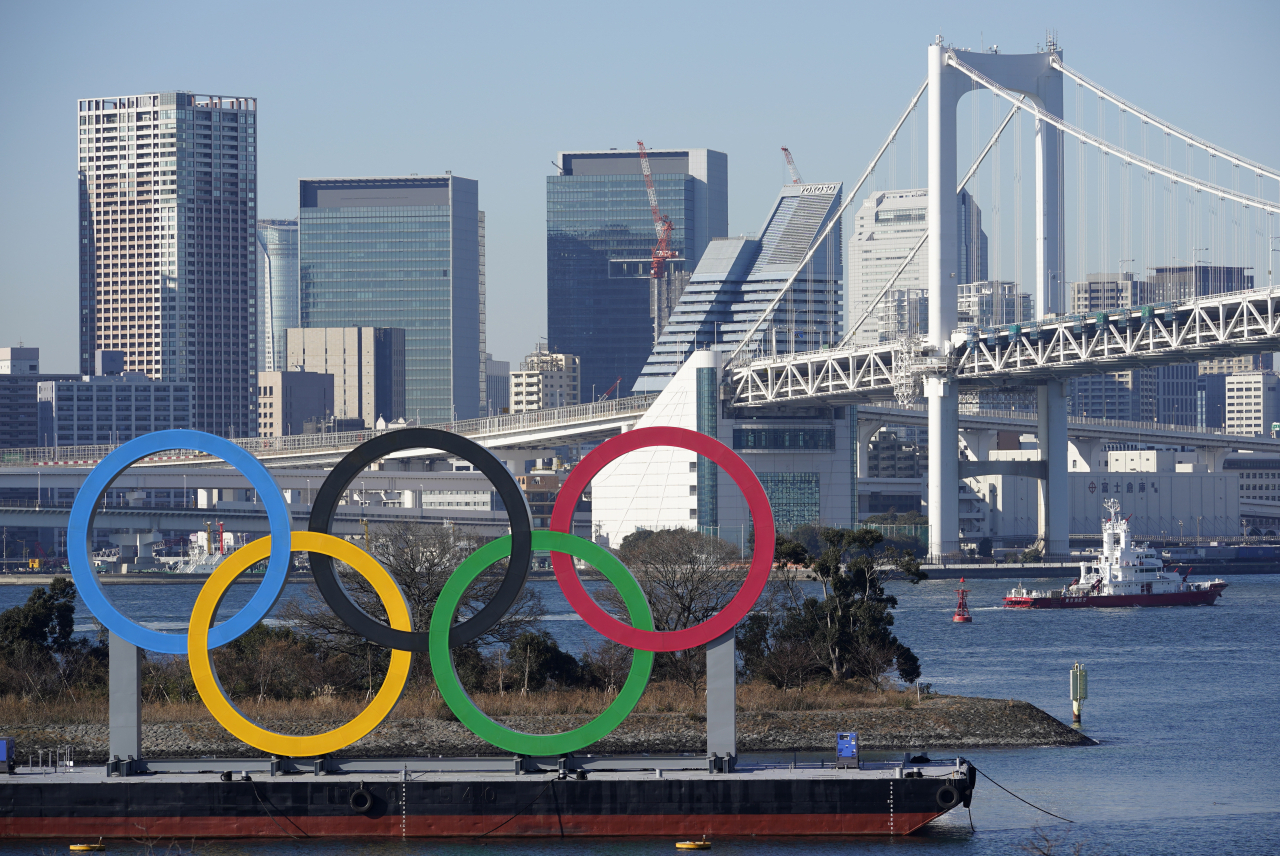 |
This Associated Press file photo from Feb. 18, 2021, shows the Olympic Rings on display in Tokyo. (AP-Yonhap) |
The countdown to the Tokyo Olympic Summer Games will reach 100 days Wednesday, if the competition opens as scheduled, that is.
The 32nd edition of the Summer Olympics already got postponed by one year due to the global coronavirus pandemic, and the normally quadrennial event, now scheduled for July 23-Aug. 8 in the Japanese capital, will open in an odd-numbered year for the first time.
Even as the clock ticks down to the opening ceremony, the cloud of uncertainty still hangs over Tokyo. The COVID-19 pandemic is still raging on in Japan and the rest of the world, with some countries being more successful at getting their citizens vaccinated than others.
Tokyo's organizers and the International Olympic Committee (IOC) are both determined to stage the competition as planned -- if for no other reason than to have it serve as, in the words of the IOC, "a beacon of hope to the world during these troubled times."
Even in normal times, the idea of bringing in tens of thousands of people from over 200 countries into one city, having them live together for over two weeks and then sending them back home doesn't seem to be such a wise idea. And doing so during the pandemic, in a country that has struggled to contain the spread of the deadly virus, can be a daunting task.
Tokyo officials and the IOC have scaled back the operations of the competition and prepared health and safety protocols. And South Korean athletes, much like others in countries where sporting competitions are taking place with some spectators on hand, are training under the assumption that the Olympics will take place.
According to the Korean Sport & Olympic Committee (KSOC), 160 South Korean athletes in 19 sports had secured spots at the Olympics as of last Thursday. In some sports, qualifying campaigns are still ongoing, and there will surely be more athletes representing South Korea come July.
The country takes pride in its sustained run of success at the Summer Olympics. It has ranked inside the top 10 in medal races at each of the past four competitions.
South Korea won its record 13 gold medals at Beijing 2008 and matched that four years later in London. In 2016, South Korea grabbed nine gold medals to rank eighth.
And the KSOC official in charge of the main national Olympic athletic training facility said the target this time around is to win seven gold medals.
Shin Chi-yong, director of the National Training Center in Jincheon, 90 kilometers south of Seoul, said Thursday that should be good enough to extend South Korea's run of consecutive top-10 finishes.
"If we can grab four to five gold medals from archery and taekwondo early on, it will help us get to our goal easily," Shin noted. "We also expect gold medals from fencing, women's golf, shooting, cycling and modern pentathlon."
With the organizers having banned international spectators into Tokyo for the Olympics, Shin said Japanese athletes will enjoy a clear advantage with partisan support but added, "I think our athletes will have enough mental fortitude to overcome that."
Shin said athletes and coaches alike have been dealing with anxiety and uncertainty of not knowing whom they'll face at the Olympics.
"My message to them is this: If you've done your best in your preparation, then you have nothing to fear," said the former national team volleyball coach. (Yonhap)








